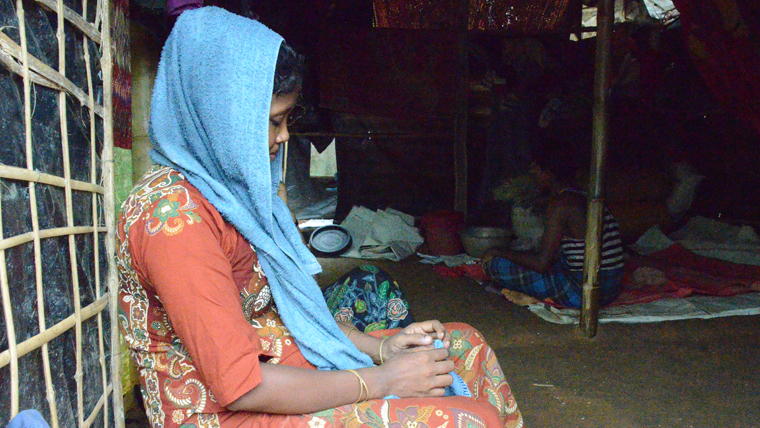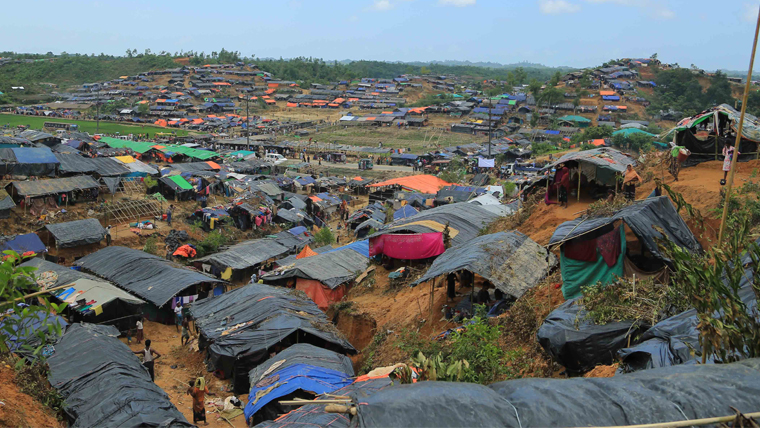Too Young
“The labor pains started around 10pm. Not enough people were around to help me. About 3pm the next day my boy entered this world. Only, a midwife, from among the refugees, was with me. It was very painful,” says 28-year-old, Fiza*, who gave birth to a boy on 23 September. Tragically, the newborn died eight days later.

In the recent crisis, caused by escalating violence in Myanmar’s Rakhine State, over 500,000 people have crossed the border into Bangladesh, more than half are women and children. An estimated one in five are pregnant or breastfeeding women. Another one in five are children under five. The refugees have had to travel on risky roads with no food, water and little rest. There is little access to clean water or nutritious food for the pregnant women in the densely populated refugee camps.
“During labour I didn't have enough strength to push. The baby had to be tugged out of me by his hands first. He cried just after coming out,” Fiza says about the night she gave birth to her son.
She feels sad, remembering the days when she wanted to breastfeed him, but could not.
“My body was unable to produce breast milk for three days. I fed him packet milk provided in distribution centre. It was cow’s milk. By the time my milk started coming, my boy had already fallen ill. He had become weak and was unable to drink more milk,” says Fiza.
For inevitable reasons, the child’s health started deteriorating. They took him to the shelter medical centre and from there he was referred to a hospital. But he didn’t survive.
“My child’s health got worse on his fourth day. He was breathing abnormally. We took my boy to the hospital. We were in hospital for three days, but the health of my baby did not improve. When his health started getting worse, they sent us home with him, it was close to midnight. We brought our child to the shelter. The next day he died,” she says.
The family performed the last prayer for the child at the temporary mosque in the refugee camp.
“There is no graveyard in the shelter. I had to search for a place to bury my child. It was a struggle. Finally, we managed to get a place in a local graveyard near the Balukhali Mosque. That day I could bury my child,” says Shorif*, the boy’s father.
Shorif grapples with understanding the reason behind his son’s death.
“I don’t know why my child died. But I know my wife had to walk a long way, from Myanmar, when we fled to save our lives. And during delivery she had to endure a lot of pain.”
In the days leading up to Fiza’s delivery, all the family could afford to eat was potatoes, cucumber and dried fish.
“The baby was in my womb for nine months. He was very gentle. When he came into the world I saw him. He had my husband’s face. We wanted to name him Anaj. Only a mother can understand how painful it is to lose a child,” Fiza explains with tears in her eyes.

Since August, hundreds of thousands of people have fled violence in Rakhine state, Myanmar, with the majority seeking refuge in Bangladesh. They are exhausted, traumatised and in urgent need of shelter, medical care, water and food.World Vision is on the ground providing food to vulnerable refugees.
Find out how you can support our appeal for refugees from Myanmar »
*names changed to protect identity.